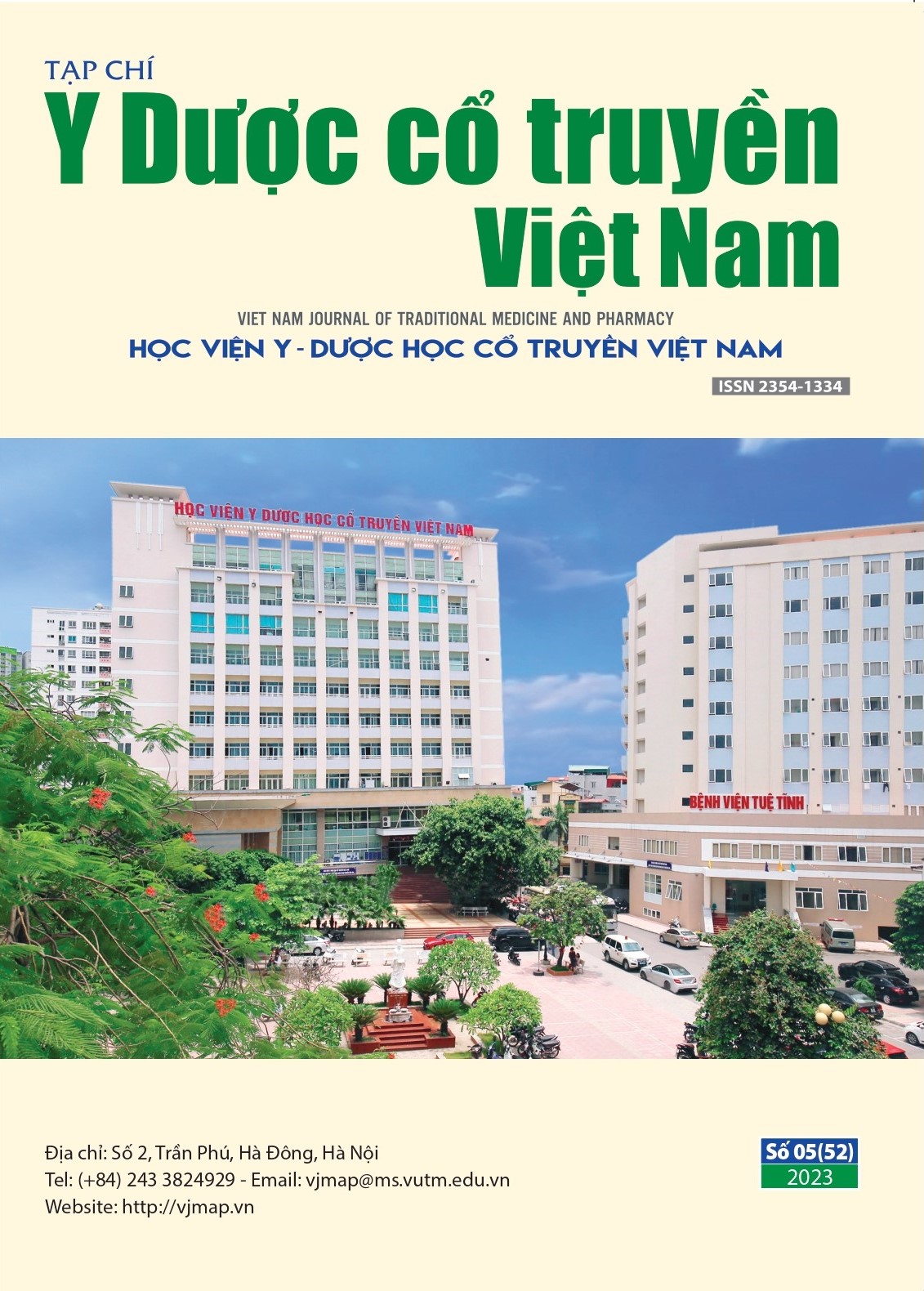Đánh giá tác dụng phương pháp khí công dưỡng sinh kết hợp điện châm điều trị rối loạn giấc ngủ không thực tổn
Main Article Content
Abstract
Objectives: To evaluate the effectiveness of qigong-yangsheng combined with electro-acupuncture in treating non-organic sleep disorders.
Subjects and methods: A clinical trial study with a pre- and post-treatment comparison with a control group was conducted on 60 patients, over 30, wwith comfirmed diagnosis of non-organic sleep disorders at Nghe An Traditional Medicine Hospital from Apirl 2022 to December 2022.
Results: After 21 days of treatment with qigong-yangsheng exercises and electro-acupuncture based on the Hoang Bao Chau method, the treatment results were good in 63.33% of the cases, fair in 33.33%, average in 3.33%, and there were no patients with poor response to treatment. This result was better than the control group.
Conclusions: The qigong-yangsheng method combined with electroacupuncture to treat non-organic sleep disorders has good treatment effects, is easy to use, safe and can be widely applied in grassroots healthcare.
Article Details
Keywords
Non-organic sleep disorders, electroacupuncture, qigong-yangsheng.
References
2. Grandner MA, Perlis ML. Treating insomnia disorder in the context of medical and psychiatric comorbidities. JAMA Intern Med, 2015, 175, pp.1472–3
3. Fleming JAE. Selsick H. Insomnia: epidemiology, subtypes, and relationship to psychiatric disorders, Sleep Disorders in Psychiatric Patients: A Practical Guide, 2018, pp.99–107.
4. Nguyễn Thị Bay. Bệnh học và điều trị nội khoa. Nhà xuất bản Y học Hà Nội, 2018, tr.102 – 109.
5. Trần Hữu Bình. "Rối loạn giấc ngủ không thực tổn", Giáo trình Tâm thần học dành cho bác sĩ đa khoa, Bộ môn Tâm thần. Trường Đại học Y Hà Nội, 2019, tr.62-68.
6. Nguyễn Nhược Kim và cộng sự. Thất miên, Bệnh học nội khoa, Y học cổ truyền (Sách đào tạo sau đại học). Trường Đại học y Hà Nội, Nhà xuất bản Y học, 2019.
7. Bloom HG, Ahmed I, Alessi CA, Ancoli-Israel S, Buysse DJ, Kryger MH, et al. Evidence-based recommendations for the assessment and management of sleep disorders in older persons. J Am Geriatr Soc, 2009, 57, pp.761–89.
8. Kwon CY, Lee B, Cheong MJ, et. al. Non-pharmacological Treatment for Elderly Individuals With Insomnia: A Systematic Review and Network Meta-Analysis. Front Psychiatry, 2021, 11, pp.608896.
9. Liu FG, Tan AH, Peng CQ, Tan YX, Yao MC. Efficacy and Safety of Scalp Acupuncture for Insomnia: A Systematic Review and Meta-Analysis. Evid Based Complement Alternat Med, 2021, pp.6621993.
10. Luo SW, Huang NP, Xiang Q, Huang XQ, Tan ZW, Teng X, Li XJ, Tu X, Gao XL. A systematic review and meta-analysis of acupuncture combined with Tuina in the treatment of insomnia. Medicine (Baltimore), 2022, 101(51), pp.e30703.

